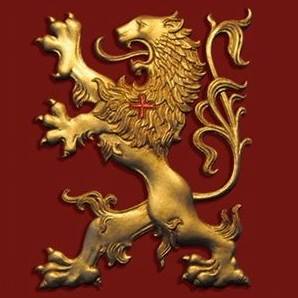
Tradition, Family, Property
Tradition, Family, Property (TFP; Portuguese: Tradição, Família, Propriedade) is an international movement of political/civic organizations of Traditionalist Catholic inspiration.[1][2]
The first TFP was founded by Plinio Corrêa de Oliveira in Brazil in 1960, inspired by his 1959 book Revolution and Counter-Revolution, which became the TFPs' foundational text,[3] later supplemented by his 1993 Nobility and Analogous Traditional Elites in the Allocutions of Pius XII.[4] He remained president of the Brazilian TFP's national council until his death in 1995.[5]
After his death, there was a legal battle upon the title and ownership of the Brazilian TFP, which was ultimately won by João Scognamiglio Clá Dias, in 2004, while he had created previously the Heralds of the Gospel (2001).
Those who opposed this action have remained active in the Association of the Founders of TFP and created the Plinio Corrêa de Oliveira Institute (Portuguese: Instituto Plinio Corrêa de Oliveira), which claims the legacy of the original TFP. They have taken the legal dispute to the Brazilian Supreme Federal Court.[6][7] In other countries across the world several organizations have continued to use the name and acronym of TFP, or have adopted other names.[8][9]
Religion, ideology and structure[edit]
The movement has been described as a "Catholic right-wing entity".[10] Its worldview has been characterized as an "extreme moralism, against divorce, against Communism, and against change."[11] Raúl Matta, in L'Ordinaire Latino-Américaine, pointed out that the group's presentation of Catholic tradition is selective, drawing on speeches and encyclicals from the most conservative popes, including the 1864 Syllabus of Errors.[12] The Italian philosopher Rocco Buttiglione noted that members of the TFP movement were among the signatories of the "Filial Correction" of Pope Francis in 2017.[13] The same year a video was made public that showed Cla Dias, the leader of the spin-off group Heralds of the Gospel, ridiculing the Vatican. In 2019 Francis named retired Cardinal Raymundo Damasceno Assis of Aparecida as pontifical commissioner of the Heralds of the Gospel and its religious branches for consecrated men and women.[14][15]
Löwy's study of the interaction of religion and politics in Latin America used the international TFP to exemplify the most conservative of four tendencies within Latin American Catholicism: the one which "defend[s] ultra-reactionary and sometimes semi-fascist ideas."[16] A recent study pointed out that "TFP draws on a rigid interpretation of Christianity to offer the faithful an all-encompassing ideological justification for what are, in essence, very conservative politics."[17] It has been noted that similar religious movements "are benign compared to Tradition, Family and Property (TFP)" which is also "opposed by the Catholic leadership because of its beliefs and recruiting procedures."[18] Some analysts see it as a fringe group within the Latin American Catholic church.[19]
Institutionally, TFPs have been described as having a "chameleon-like identity". When dealing with the church, they describe themselves as a civic association of the laity, and therefore independent of ecclesiastical control; when dealing with civil society, they stress that they are a voluntary association inspired by religious ideals, and therefore not subject to certain civil regulations such as labor laws.[20]